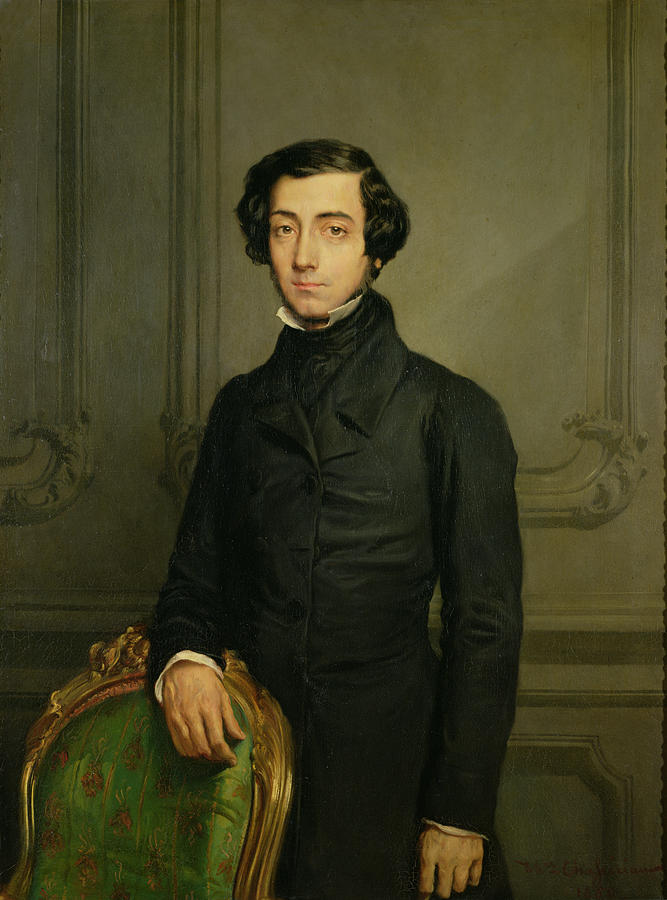
Alexis de Tocqueville
Alexis Charles Henri Clérel, comte de Tocqueville (/ˈtɒkvɪl, ˈtoʊkvɪl/ TO(H)K-vil,[7] French: [alɛksi də tɔkvil]; 29 July 1805 – 16 April 1859),[8] usually known as just Tocqueville, was a French aristocrat, diplomat, sociologist, political scientist, political philosopher, and historian. He is best known for his works Democracy in America (appearing in two volumes, 1835 and 1840) and The Old Regime and the Revolution (1856). In both, he analyzed the living standards and social conditions of individuals as well as their relationship to the market and state in Western societies. Democracy in America was published after Tocqueville's travels in the United States and is today considered an early work of sociology and political science.
"Tocqueville" redirects here. For other uses, see Tocqueville (disambiguation).
Alexis de Tocqueville
Hervé de Kergorlay
Jules Polydore Le Marois
Gabriel-Joseph Laumondais
16 April 1859 (aged 53)
Cannes, France
Movement Party[1][2]
(1839–1848)
Party of Order
(1848–1851)
Democracy in America (1835)
The Old Regime and the Revolution (1856)
Tocqueville was active in French politics, first under the July Monarchy (1830–1848) and then during the Second Republic (1849–1851) which succeeded the February 1848 Revolution. He retired from political life after Louis Napoléon Bonaparte's 2 December 1851 coup and thereafter began work on The Old Regime and the Revolution.[9] Tocqueville argued the importance of the French Revolution was to continue the process of modernizing and centralizing the French state which had begun under King Louis XIV. He believed the failure of the Revolution came from the inexperience of the deputies who were too wedded to abstract Enlightenment ideals.
Tocqueville was a classical liberal who advocated parliamentary government and was skeptical of the extremes of majoritarianism.[9] During his time in parliament, he was first a member of the centre-left before moving to the centre-right,[10] and the complex and restless nature of his liberalism has led to contrasting interpretations and admirers across the political spectrum.[3][4][5][11]
References in popular literature[edit]
Tocqueville was quoted in several chapters of Toby Young's memoirs How to Lose Friends and Alienate People to explain his observation of widespread homogeneity of thought even amongst intellectual elites at Harvard University during his time spent there. He is frequently quoted and studied in American history classes. Tocqueville is the inspiration for Australian novelist Peter Carey in his 2009 novel Parrot and Olivier in America.[66]
